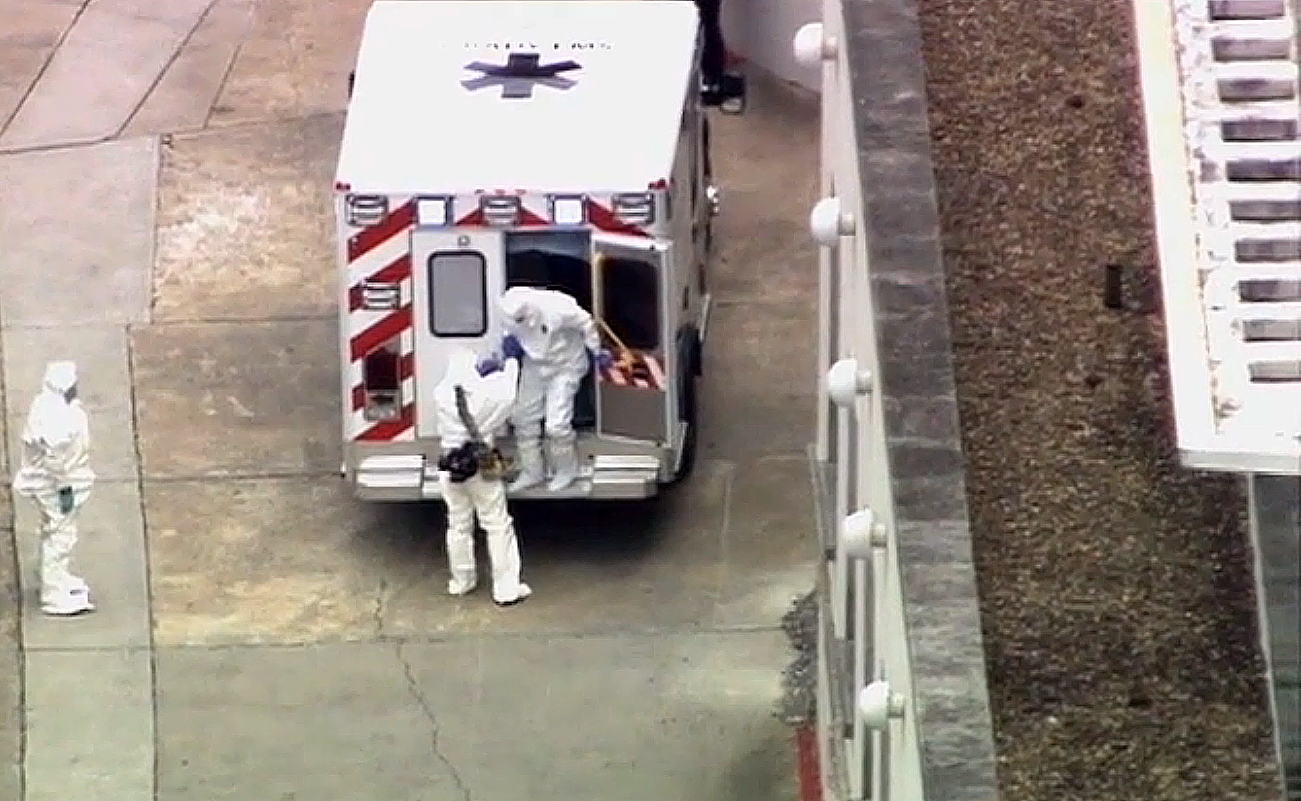Ebola in America: Timeline of the Deadly Virus
How the Ebola virus came to the United States and spread.
— -- Another person has died of Ebola on American soil, reminding U.S. citizens that although many health workers have survived the virus, even treatment at one of the best facilities doesn't guarantee being cured.
The Ebola outbreak that began in West Africa has sickened at least 14,413 people since March, killing at least 5,177 of them as of Nov. 14 -- making it by far the worst outbreak of the virus in history, according to the World Health Organization.
The virus first arrived in the United States via U.S. missionaries flown here for treatment this summer. The Ebola virus was also unwittingly imported by Liberian tourist Thomas Eric Duncan, who flew from Liberia to Texas with the virus and later died in Dallas.
Nov. 17. 2014 - Dr. Martin Salia, a U.S. resident who contracted Ebola while treating patients in Sierra Leone, died of the virus at Nebraska Medical Center. He was the third patient to be treated there and the only one to have died.
Nov. 15, 2014 - Salia, a native of Sierra Leone who lives in the U.S. and is married to a U.S. citizen, arrives at Nebraska Medical Center. He is "extremely ill," doctors say. His wife has agreed to pay for his trip to the U.S. for treatment.
Nov. 10, 2014 - Salia tests positive for Ebola.
Nov. 6, 2014 - Salia shows Ebola symptoms in Sierra Leone, but initially tests negative for the virus.
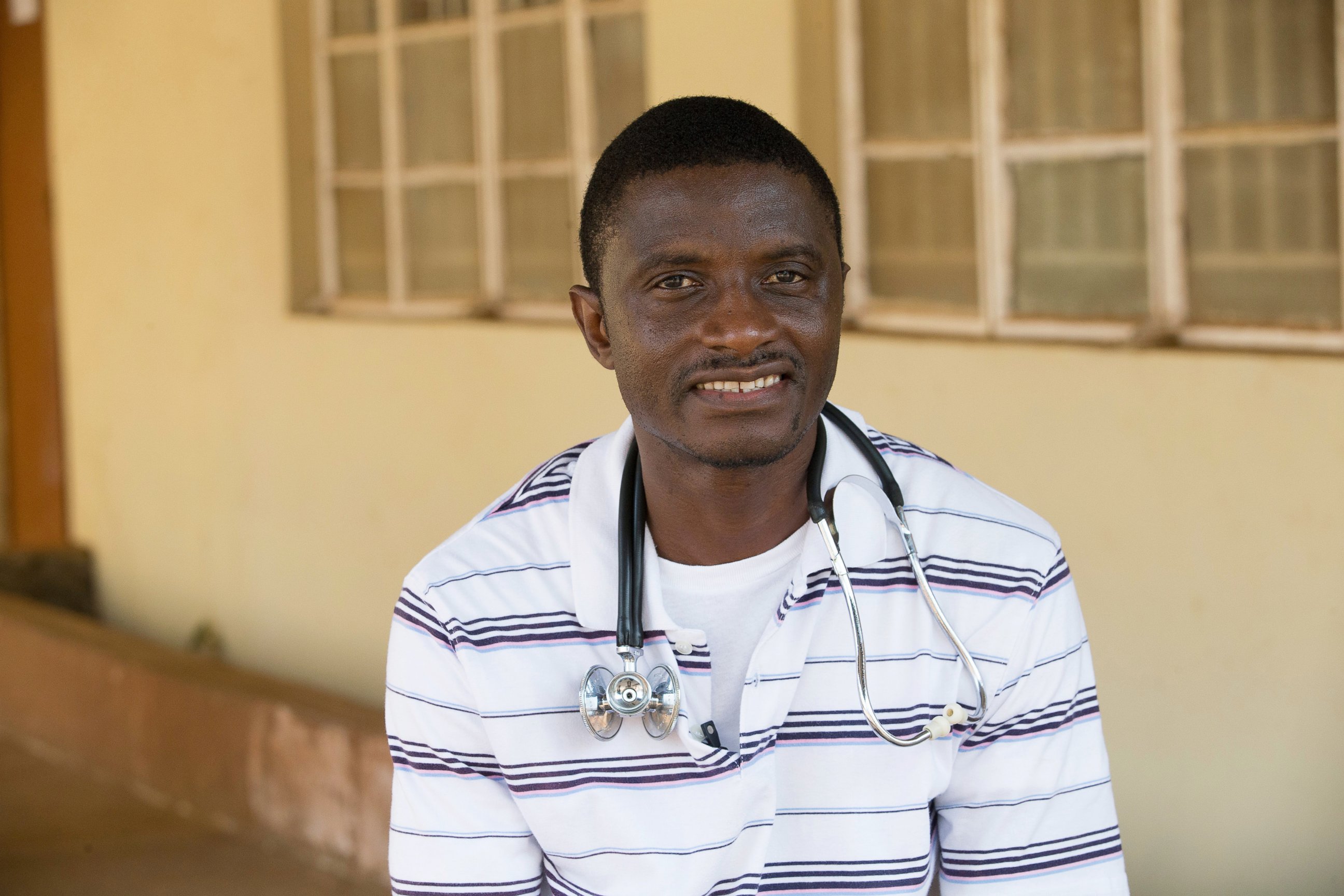
Oct. 24, 2014 - Dallas nurse Nina Pham, 26, the first person to contract Ebola in the United States, is virus-free, the National Institutes of Health announces.
Oct. 23, 2014 - Dr. Craig Allen Spencer is diagnosed with Ebola the same day he went into isolation at Bellevue Hospital in Manhattan. According to the hospital, he had a fever and gastrointestinal symptoms when he was taken to Bellevue. Spencer recently returned from Guinea, where he was working with Doctors Without Borders. NYC Mayor Bill de Blasio said at a news conference that Spencer only had symptoms for "a very brief period of time" and only had contact with "very few" people. He described the patient as "in good shape."
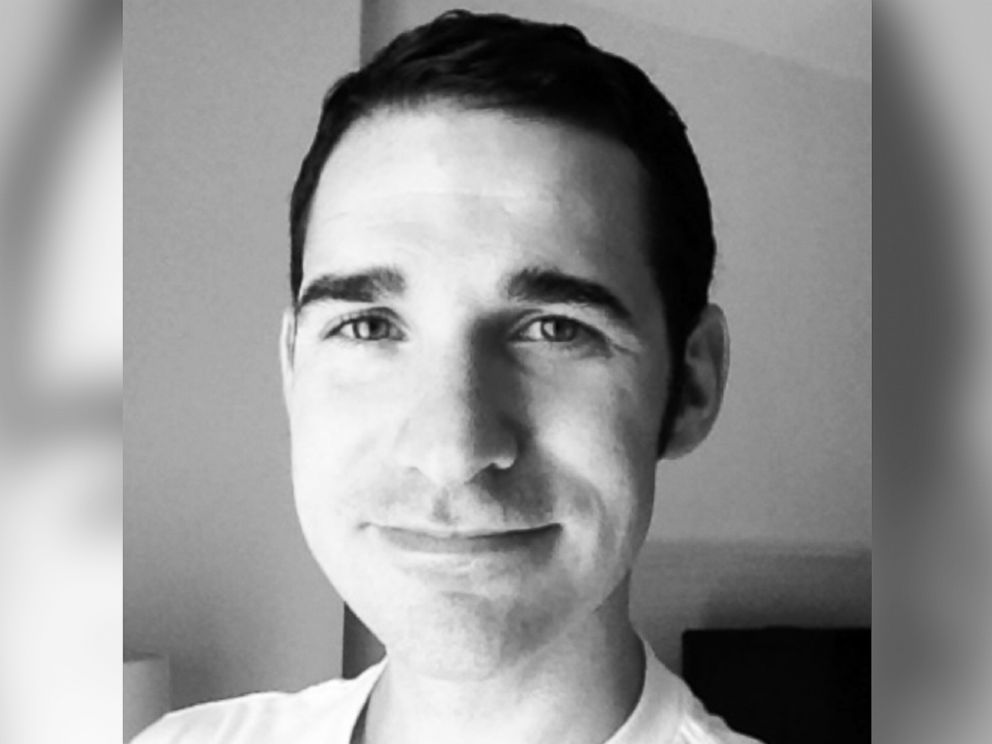
Oct. 22, 2014 - Ebola patient Amber Vinson, 29, a nurse who treated Thomas Eric Duncan, the first person diagnosed with Ebola on American soil, is declared virus-free at Emory University Hospital, where she was transferred after testing positive for the virus at Texas Health Presbyterian Hospital, where she works. Her family said she tested negative for the virus and would be moved from isolation.
Oct. 19, 2014 - The unnamed American Ebola patient is discharged from Emory University Hospital, where the patient had been undergoing care since Sept. 9. This patient had been working for the WHO in Sierra Leone and chose to remain anonymous.
Oct. 17, 2014 - Spencer arrives back in the United States via Brussels after spending a month in Guinea with Doctors Without Borders treating Ebola patients. He lands in New York's John F. Kennedy International Airport.
Oct. 17, 2014 - Officials announce that a Dallas health worker who handled clinical specimens from Duncan, the first person diagnosed with Ebola on American soil, is quarantined aboard a Carnival cruise ship amid concerns the worker may have been exposed to the Ebola virus.
Oct. 16, 2014 - Pham is flown from Texas Health Presbyterian Hospital in Dallas to the National Institutes of Health hospital in Bethesda, Maryland. Pham treated Duncan at Texas Health Presbyterian Hospital, where she works.
Oct. 15, 2014 - Vinson is diagnosed with Ebola shortly after midnight and flown to Emory University Hospital that evening.
Oct. 14, 2014 - Vinson is taken to Texas Health Presbyterian Hospital in Dallas with a fever.
Oct. 13, 2014 - Vinson flies from Cleveland to Dallas on Frontier Airlines Flight 1143, arriving at 8:16 p.m. She has no symptoms, but her temperature was 99.5 degrees that morning, according to health officials. She notified the Centers for Disease Control and Prevention before boarding, and no one told her not to fly.
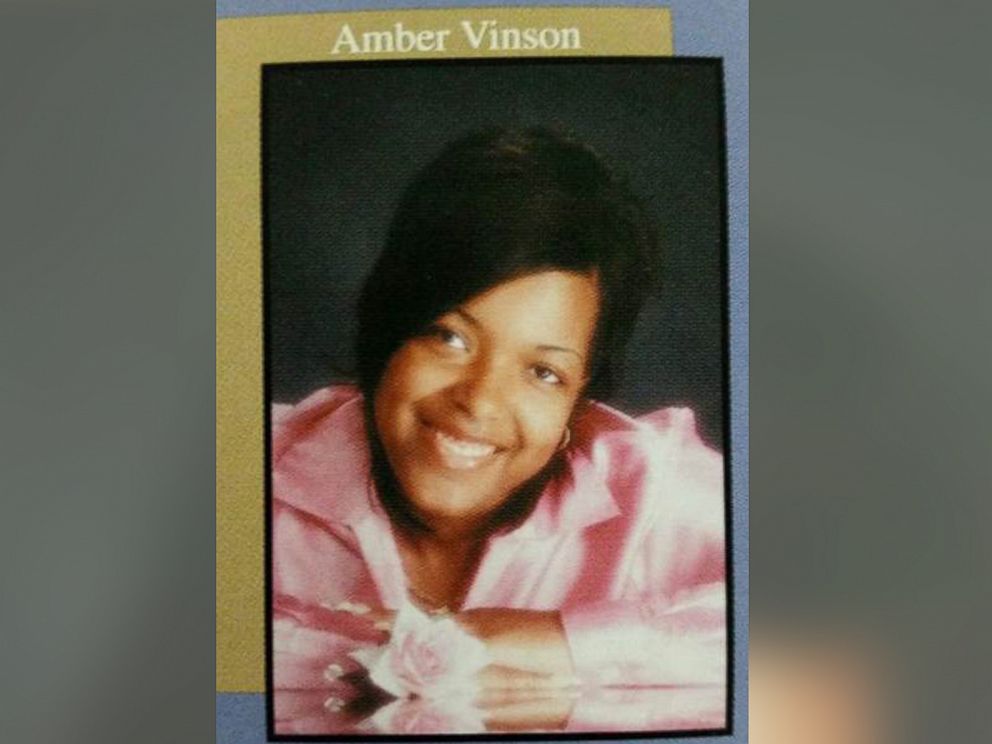
Oct. 12, 2014 – Texas Health Presbyterian Hospital in Dallas says that Pham has tested positive for Ebola.
Oct. 12, 2014 - An unidentified Dallas health worker who handled Duncan's clinical specimens at Texas Healthy Presbyterian Hospital boards a cruise ship. The CDC notified the worker about active monitoring after the cruise ship left the country, according to a government statement.
Oct. 10, 2014 - Vinson takes a commercial flight from Dallas to Cleveland, Ohio, to prepare for her upcoming wedding.
Oct. 9, 2014 – A Dallas County sheriff's deputy who reported symptoms associated with Ebola after serving a quarantine order on the apartment where Duncan had been staying tests negative for the virus.
Oct. 8, 2014 – Duncan dies at Texas Health Presbyterian Hospital.
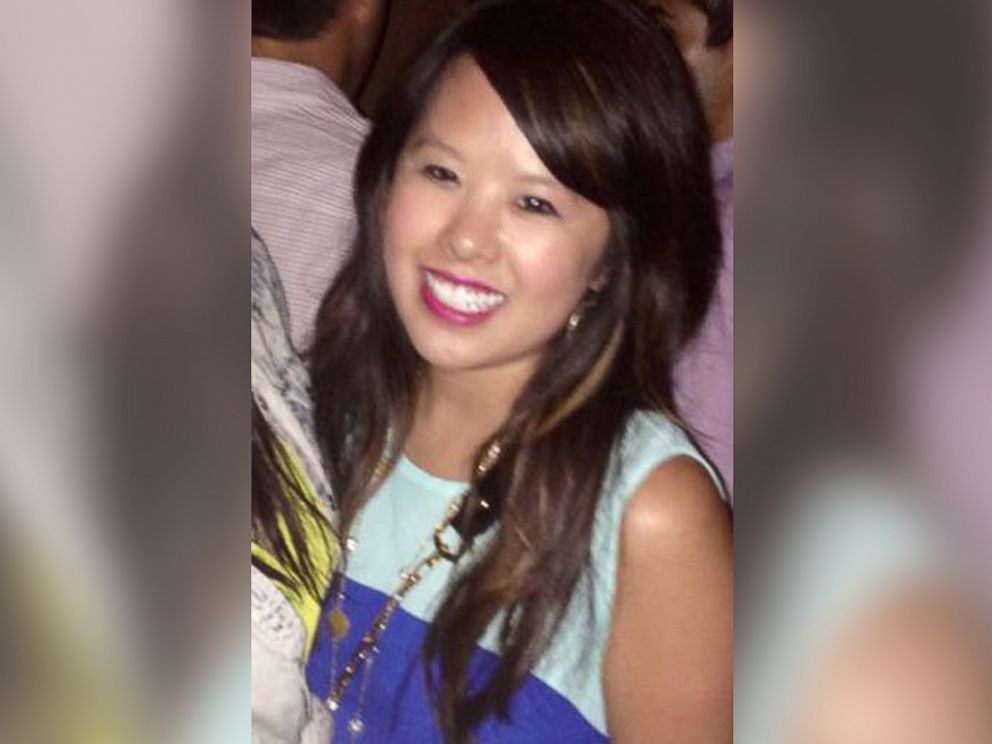
Oct. 6, 2014 – Ashoka Mukpo, 33, a freelance American cameraman who contracted Ebola in West Africa, arrives at Nebraska Medical Center for Ebola treatment.
Oct. 6, 2014 – Dr. Rick Sacra, 51, who contracted Ebola while treating patients in a Liberian maternity ward a month earlier, is released from his second hospitalization since returning to the United States. He had been hospitalized at UMass Memorial Medical Center on Worcester, Massachusetts, with what doctors initially thought was an Ebola relapse but soon diagnosed as a respiratory infection.
Oct. 5, 2014 – Sacra hospitalized in Massachusetts with what doctors fear is an Ebola relapse. They isolate him out of what they said was an abundance of caution.
Oct. 2, 2014 – Mukpo is diagnosed with Ebola in Liberia. He worked for Vice News, NBC News and other outlets.
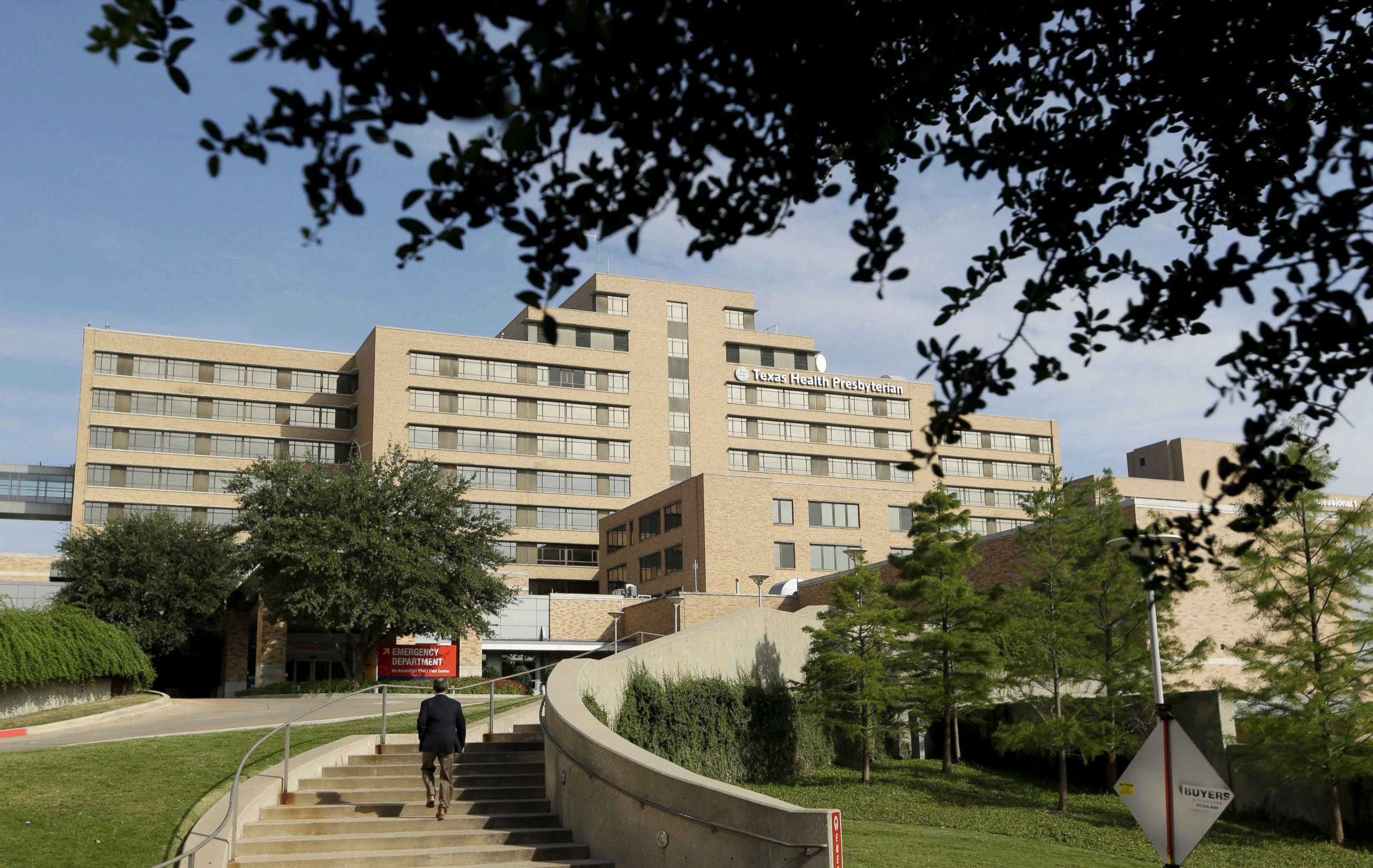
Sept. 30, 2014 – The CDC confirms that a patient who would later be identified as Duncan has been diagnosed with Ebola on U.S. soil.
Sept. 28, 2014 – Duncan returns to the hospital in an ambulance and is isolated.
Sept. 26, 2014 – Duncan goes to Texas Presbyterian Health Hospital in Dallas with a fever and tells a nurse he has been to Liberia. But he is sent home with antibiotics and Tylenol.
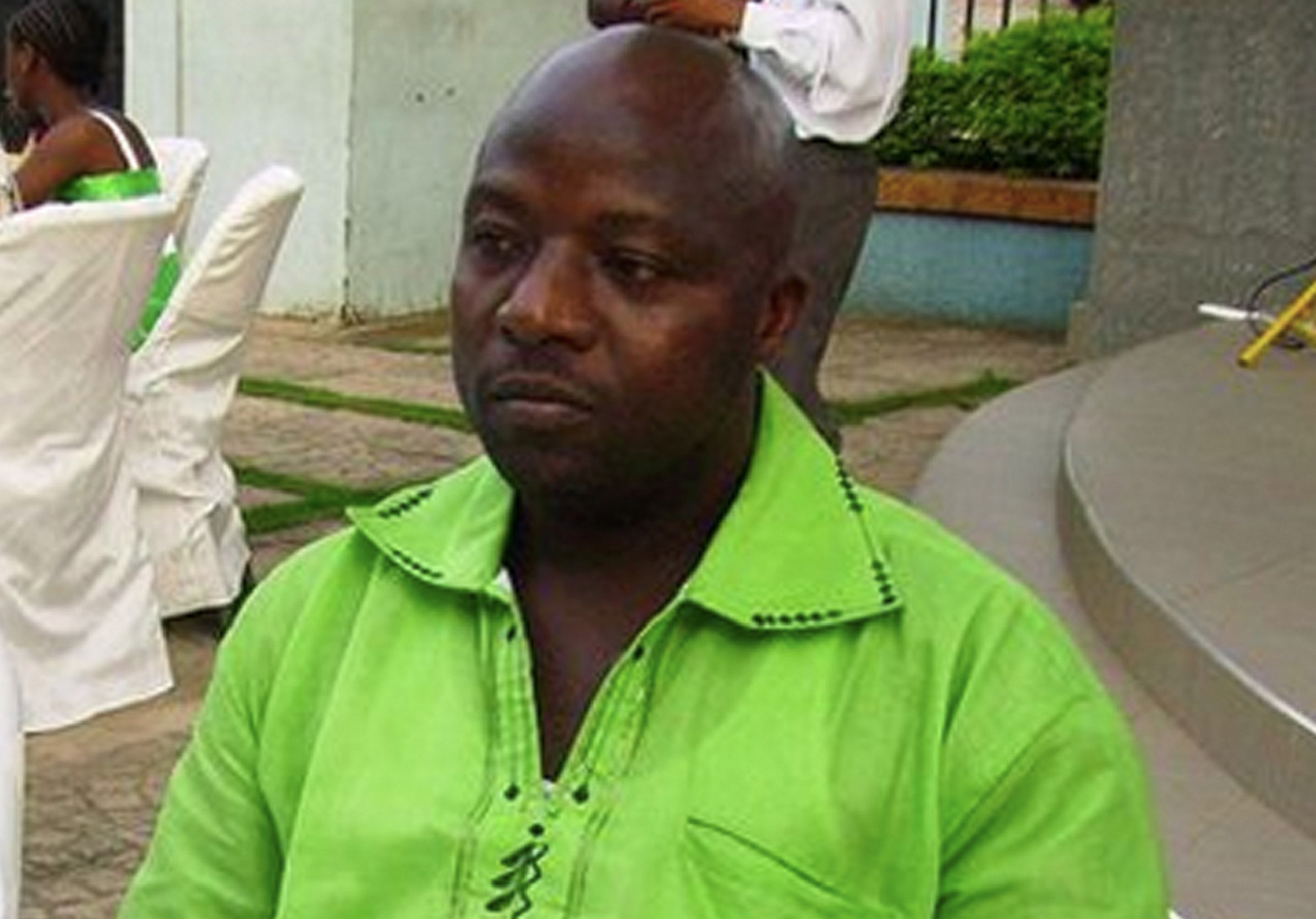
Sept. 25, 2014 – Sacra is deemed virus-free and released from Nebraska Medical Center, where he had spent weeks in an isolation ward recovering from Ebola.
Sept. 20, 2014 – Duncan arrives in the United States from Liberia to visit family.
Sept. 9, 2014 – An unnamed American Ebola patient arrives at Emory University Hospital for treatment. This patient had been working for the WHO in Sierra Leone.
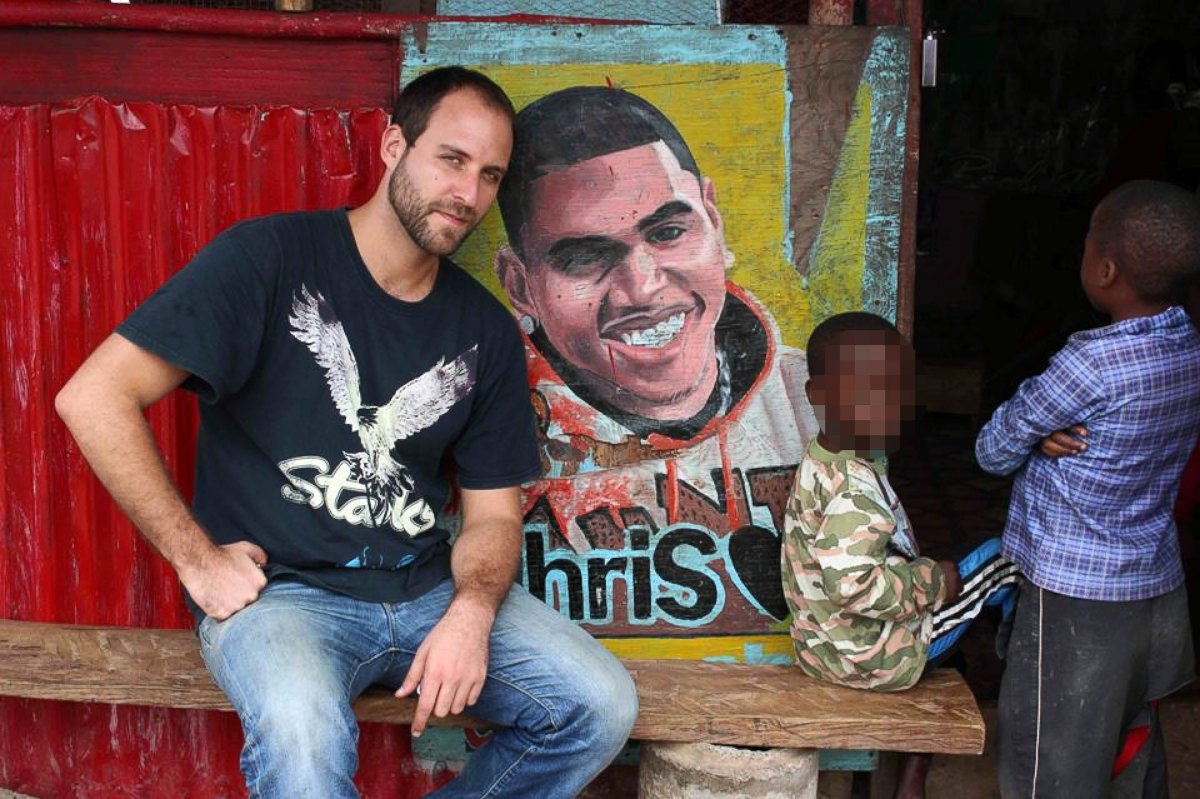
Sept. 5, 2014 – Sacra arrives at Nebraska Medical Center for treatment. He eventually gets a blood transfusion from Dr. Kent Brantly, the American missionary who survived his bout with Ebola.
Sept. 3, 2014 – Sacra was diagnosed with Ebola even though he was treating patients in the maternity ward of the ELWA Hospital in Monrovia, Liberia, not Ebola patients.
Aug. 21, 2014 – Dr. Kent Brantly, 33, is discharged from Emory University Hospital, where he was undergoing treatment for Ebola after contracting it in Africa. In a news conference, he hugs several members of the hospital staff.
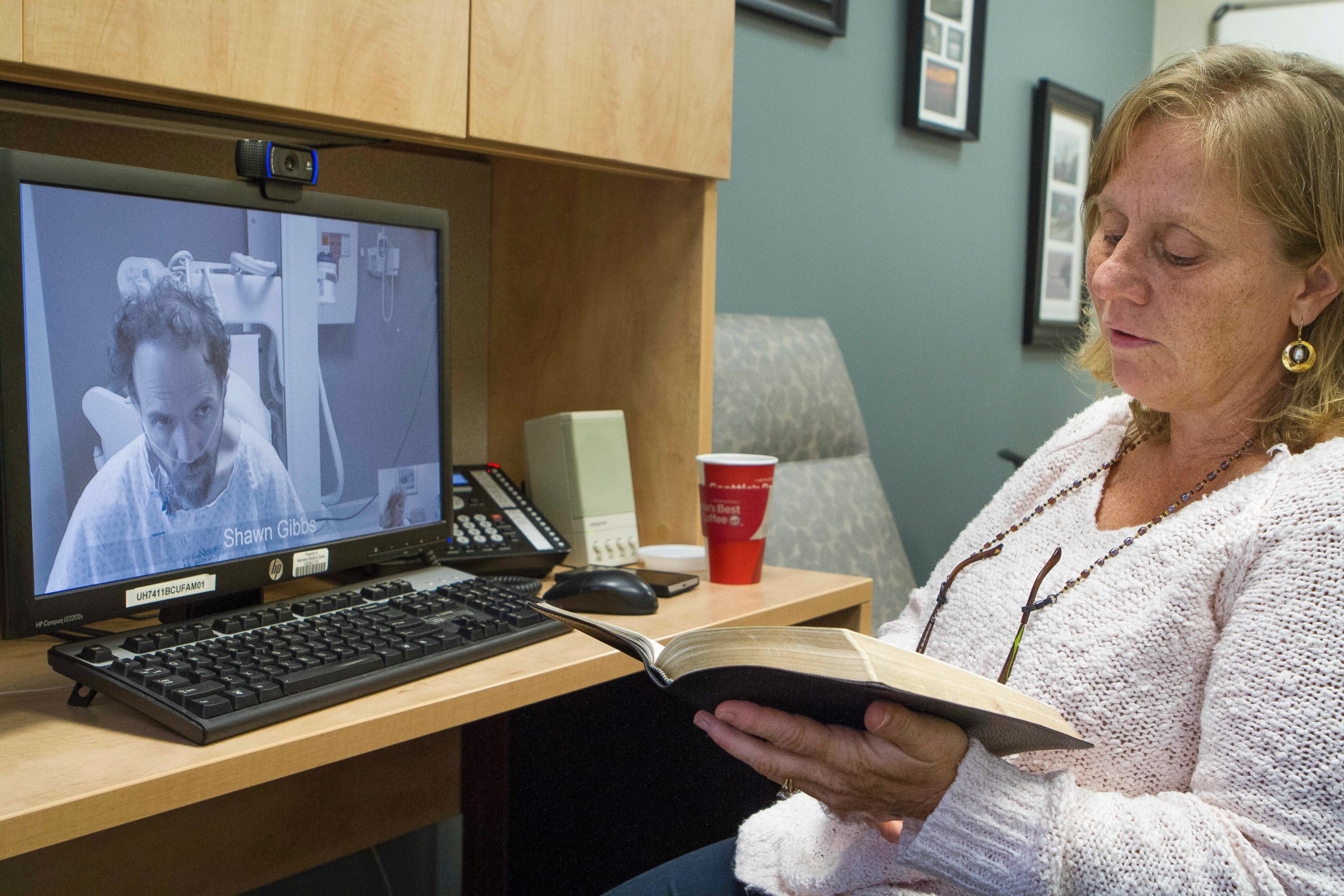
Aug. 19, 2014 – Missionary Nancy Writebol, 59, is quietly discharged from Emory University Hospital, where she was undergoing treatment for Ebola. She also contracted the virus doing aid work in Liberia.
Aug. 5, 2014 – Writebol is flown from Liberia to Emory University Hospital in Atlanta, Georgia, for Ebola treatment in its isolation ward.
Aug. 2, 2014 – Brantly is flown from Liberia to Emory for treatment. He surprises everyone by walking out of the ambulance into the hospital in his protective suit.
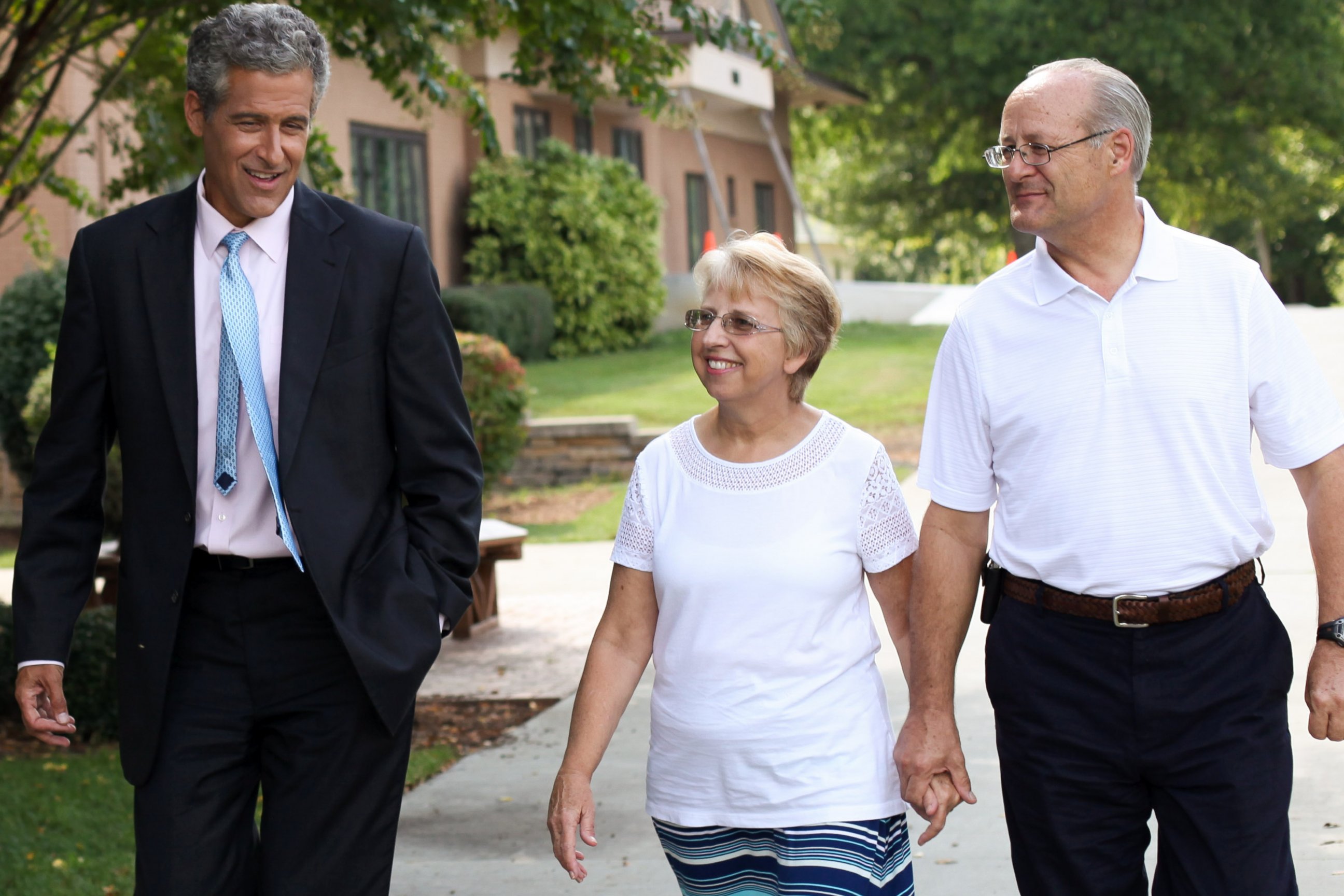
July 31, 2013 – In Liberia, Brantly gets the first dose of an experimental drug called ZMapp, though it was unnamed at the time. Though doctors initially thought there was only enough for one person, Writebol was administered the drug as well.
July 27, 2014 – Missionary groups report that two Americans are sickened with Ebola while helping patients in Monrovia, Liberia. Brantly and Writebol were working for aid groups Samaritan's Purse and SIM, respectively. Brantly later told reporters he held patients' hands as they were dying.
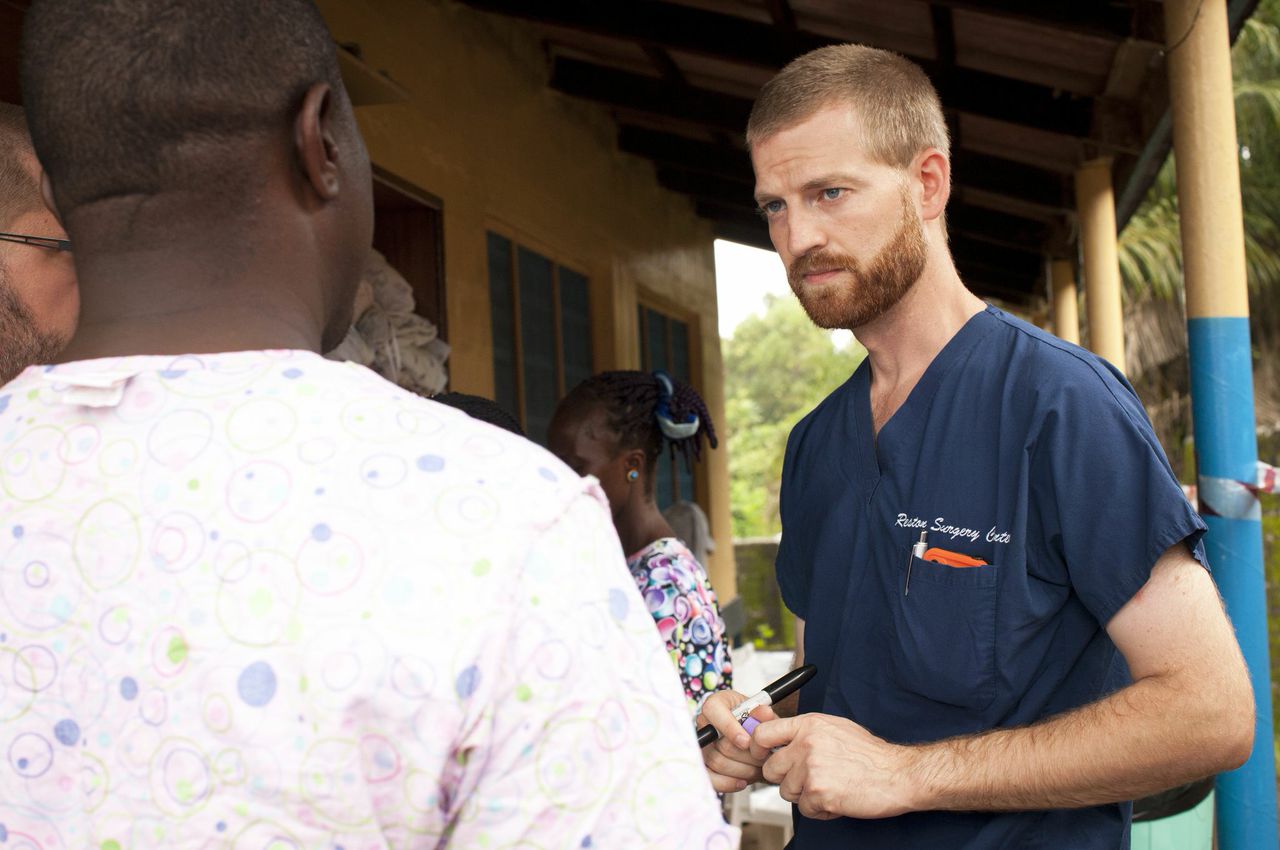
March 19, 2014 – What would become the largest Ebola outbreak in history begins in March 2014 with 23 deaths from what is then called a "mystery" hemorrhagic fever.
1976 – Ebola is first discovered in what is now the Democratic Republic of Congo near the Ebola River in 1976. Thirty-two Ebola outbreaks would follow, bringing the total number of cases before this outbreak to 2,361, including 1,438 deaths, according to the WHO.
